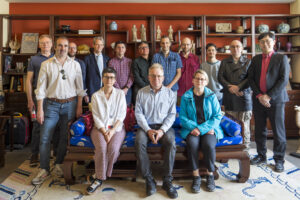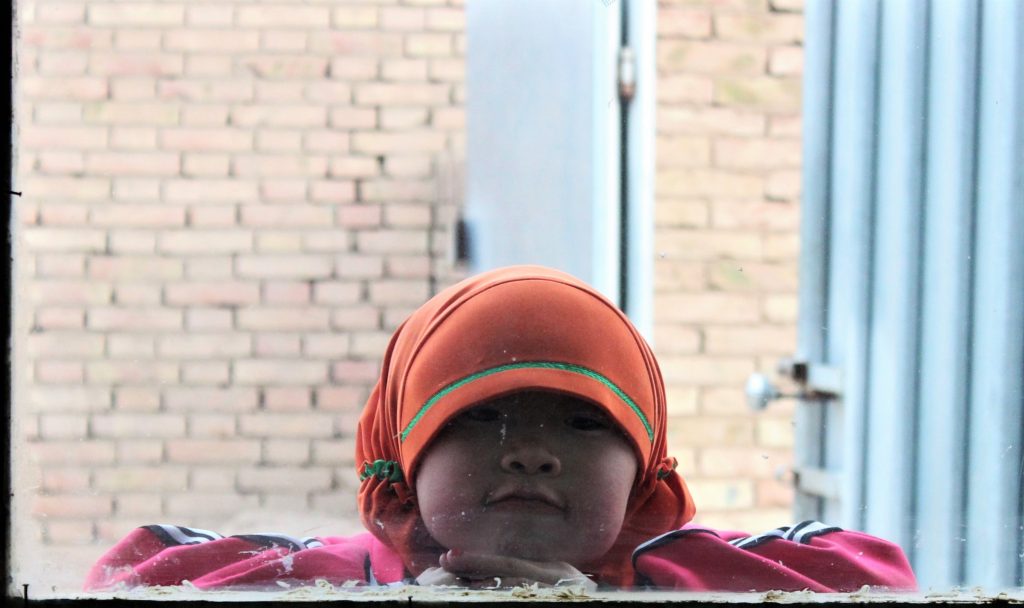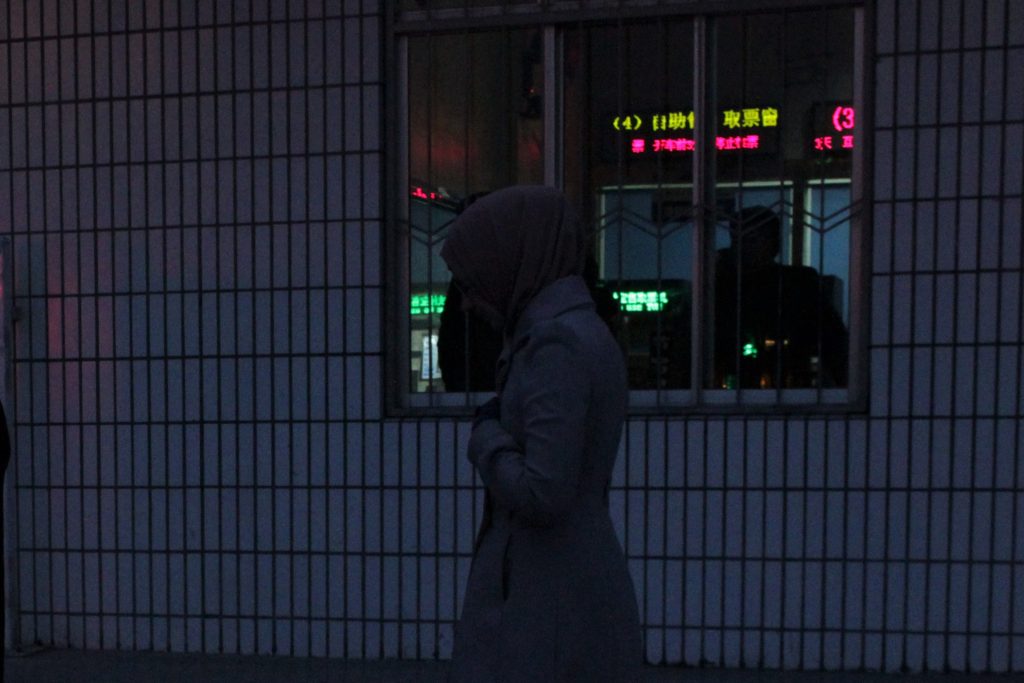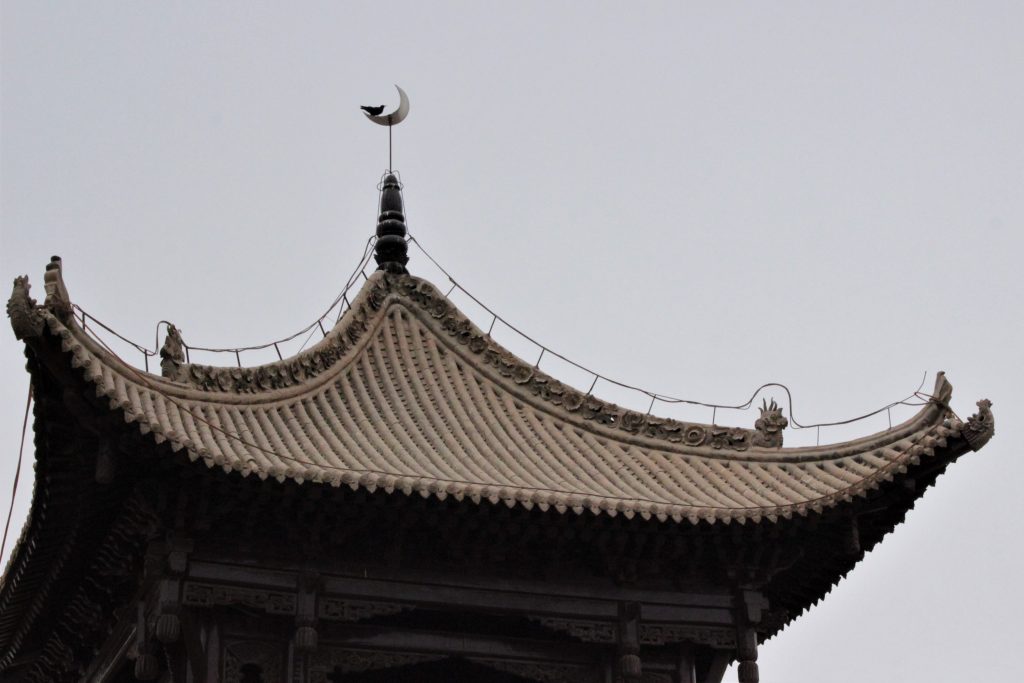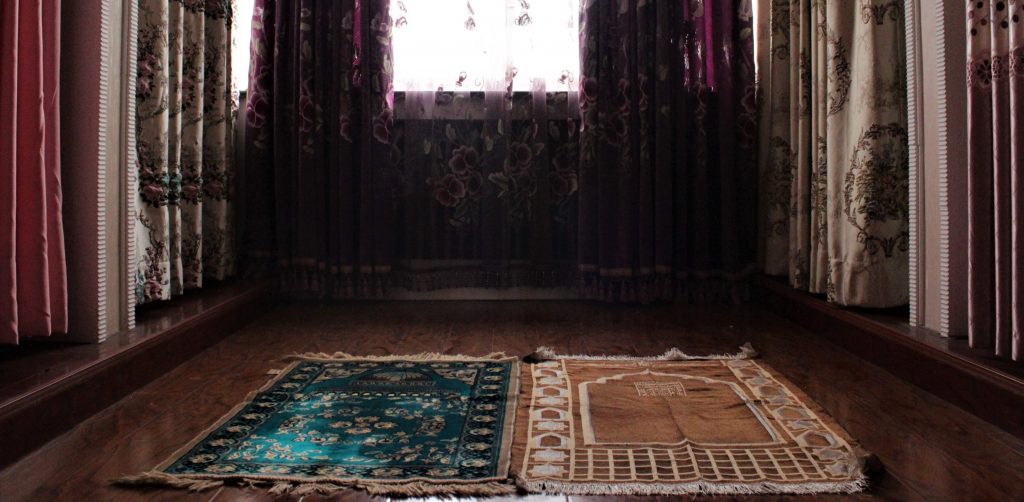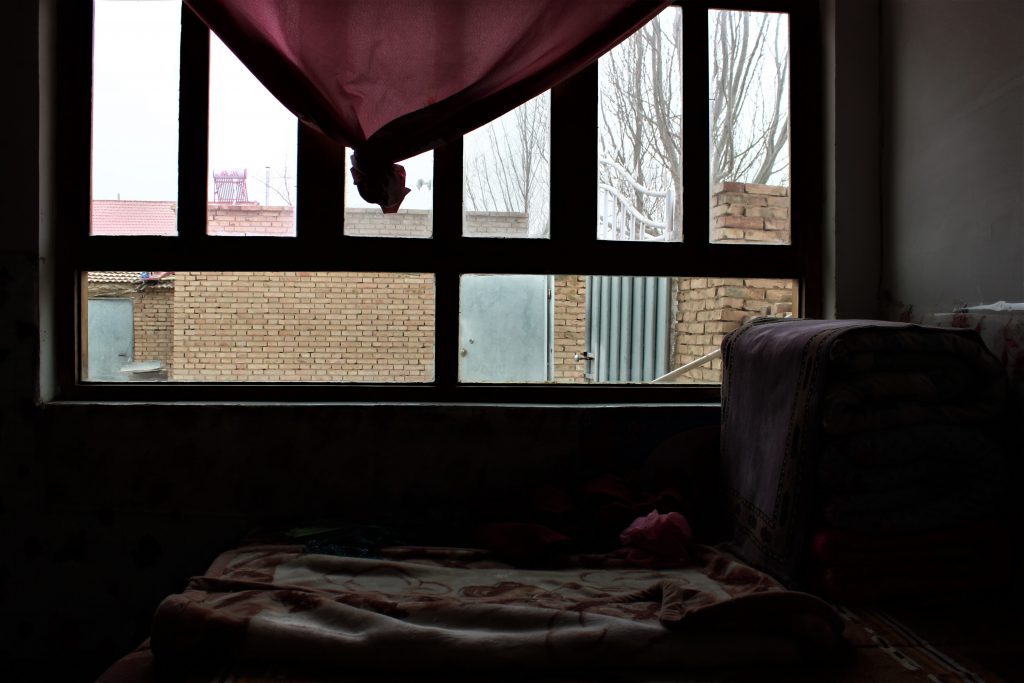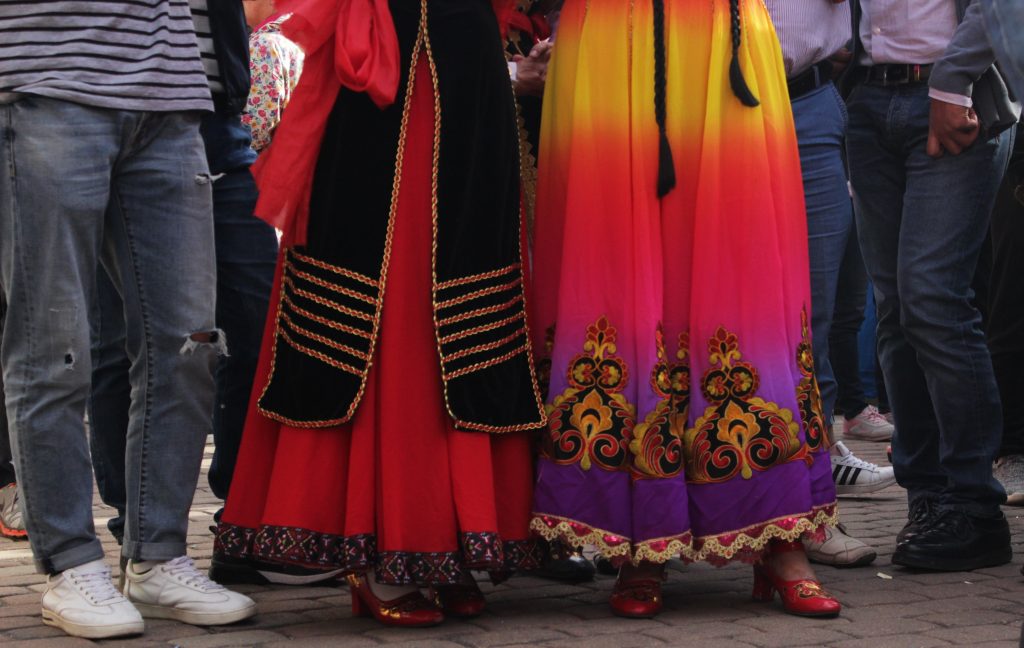Yahya, April’s classmate, stood behind the bikes aligned just inside the west gate, shifting his weight from one leg to the other and facing away from where she and I approached. She called his name and he turned, exposing a tall nose, green eyes, and an evidently well-loved mustache. An identity marker, however small, that pencil thin mustache conveyed his ethnicity – Uyghur, the second largest group of Muslims in China. I offered my salaams to his back and he returned them over his shoulder as he lead us across the street to a qing zhen (请真: Chinese for halal) restaurant where we would share dinner.
“Why you come to China?” I remember, was the first question he ever asked me.
“To study.”
“Study what?”
“Religion in China.”
He clicked his tongue and smothered a small smile: “We have no religion in China.”
I felt my eyes narrow while I suppressed the urge to mention how I noticed a prayer mat in his back pocket on the walk over. April leaned forward, just as confused as myself. The whole purpose in introducing me to her classmate was to help widen my circle of Muslim friends in Beijing. Yet, here was Yahya, the classmate whom April assumed knew all Muslims on campus, telling me there is no religion in China. “China has religion,” I said slowly. “The people here, in this restaurant, they’re Hui. Aren’t they Muslim? And… and there are more Christians here than in all of Europe.”
“But in Beijing?” The slight smile remained.
“Don’t tell me there is no religion here – I’ve been to mosques here. And I know there are churches here. And temples! Daoist and Buddhist. It is just the Han,” I said, motioning to my roommate seated beside me, “who do not believe in anything.”
“We believe in something!” she declared.
We both turned to her, his eyes widening with amusement at her outburst. “Really?”
“We believe in Chairman Mao!”
At that, his mustache thinned with the blossoming of his grin. “So, please,” he motioned towards her, “pray to Mao for us, say xiexie for the food.” She smiled yet reddened, balling up small napkins one by one and throwing them across the table at him as he laughed himself into his hands.
